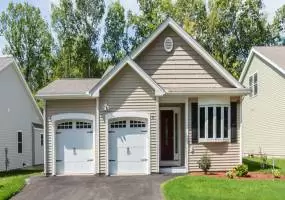Understanding the Financial Aspects of Senior Housing:
Budgeting for Senior Housing: Assessing the Financial Considerations When it comes to senior housing, it’s crucial to assess the financial aspects and budget accordingly.
Here are some key points to consider:
- Income and Expenses: Evaluate your current income, including retirement funds, pensions, and Social Security benefits. Take into account your monthly expenses, such as healthcare costs, utilities, transportation, and daily living expenses. This will help you determine how much you can afford to allocate towards senior housing.
- Affordability and Cost Comparison: Research different senior housing options and compare their costs. Consider factors such as rent, monthly fees, and any additional services or amenities included. Assess whether the pricing aligns with your budget and if there are any potential cost-saving opportunities.
- Financial Assistance Programs: Explore potential financial assistance programs that may be available to help offset the costs of senior housing. This could include government-funded programs, subsidies, or grants specifically designed for seniors. Research eligibility requirements and application processes for these programs.
Payment Options and Costs: Exploring the Financial Aspects of Senior Living When considering senior housing, it’s essential to understand the various payment options and costs associated with it.
Here are some key considerations:
- Rental vs. Ownership: Determine whether you prefer renting or owning your senior housing. Renting typically involves monthly payments, while ownership may require upfront costs or mortgage payments. Evaluate which option aligns with your financial goals and preferences.
- Additional Services and Amenities: Assess any additional services or amenities offered by the senior housing community and their associated costs. These could include meal plans, housekeeping, transportation, fitness facilities, and social activities. Consider whether these extras are within your budget or if you can prioritize and adjust based on your needs.
- Long-Term Care Insurance and Financial Resources: Explore the option of long-term care insurance and its coverage for senior housing. Additionally, research other financial resources such as Medicare, Medicaid, or veterans’ benefits that may help cover some of the costs. Understanding these resources can provide valuable financial support.
By understanding the financial aspects of senior housing, including budgeting and exploring payment options, you can make informed decisions that align with your financial capabilities and goals. Assessing the financial considerations ensures that you choose a senior housing option that is both affordable and provides the services and amenities you desire for a comfortable and fulfilling living experience.
Exploring Financial Assistance Programs and Resources:
Explaining Long-Term Care Insurance: Financial Support for Senior Housing Long-term care insurance can provide valuable financial support for senior housing. Here’s what you need to know:
- Understanding Long-Term Care Insurance: Learn about long-term care insurance and how it can help cover the costs associated with senior housing. This insurance typically covers services such as assisted living, memory care, and nursing home care. Explore the different coverage options, premiums, and benefits available.
- Assessing Eligibility and Coverage: Understand the eligibility criteria for long-term care insurance and the coverage it offers. Some policies may have specific requirements, such as age or health conditions. Assess whether you meet the criteria and evaluate the extent of coverage provided for senior housing.
- Comparing Policies: Research and compare different long-term care insurance policies to find the one that best suits your needs. Consider factors such as cost, coverage limits, waiting periods, and the reputation of the insurance provider. It’s essential to choose a policy that aligns with your budget and offers comprehensive coverage for senior housing.
Medicare and Medicaid: Accessing Financial Resources for Senior Living Medicare and Medicaid are government programs that can help provide financial resources for senior housing.
Here’s an overview:
- Medicare: Understand the role of Medicare in senior housing. Medicare Part A may cover certain skilled nursing facility care, while Medicare Part B can help with outpatient services and medical equipment. Explore the coverage limitations and requirements for Medicare in relation to senior housing.
- Medicaid: Learn about Medicaid, a joint federal and state program that provides healthcare coverage for individuals with low income. Medicaid can assist in covering the costs of senior housing, including nursing home care and some assisted living services. Research the eligibility criteria and application process for Medicaid in your state.
By exploring financial assistance programs such as long-term care insurance, Medicare, and Medicaid, you can gain a better understanding of the financial resources available for senior housing. These programs can help alleviate the financial burden and make senior housing more accessible and affordable for individuals in need of support.
Guidance on Budgeting and Planning for Senior Housing:
Planning Ahead: Budgeting for the Financial Implications of Senior Housing When considering senior housing options, it’s important to plan ahead and understand the financial implications.
Here’s how you can budget effectively:
- Assessing Your Financial Situation: Start by evaluating your current financial situation. Consider your income, savings, assets, and any potential sources of financial support, such as pensions or retirement accounts. Determine how much you can allocate towards senior housing expenses.
- Researching Costs: Research and gather information on the costs associated with different types of senior housing options. This may include monthly fees, rent, utility bills, and additional services or amenities. Take into account any potential increases in costs over time.
- Creating a Budget: Develop a comprehensive budget that outlines your income, expenses, and savings goals. Allocate funds specifically for senior housing expenses, ensuring that you can comfortably afford the chosen housing option without straining your finances.
- Planning for Future Expenses: Anticipate future expenses related to senior housing, such as potential increases in healthcare needs or long-term care services. Consider setting aside additional savings or exploring long-term care insurance options to mitigate future financial burdens.
- Seeking Professional Advice: If needed, consult with financial advisors or senior housing specialists who can provide personalized guidance on budgeting and financial planning for senior housing. They can help you make informed decisions based on your specific financial situation and goals.
Financial Preparedness: Tips for Planning Your Senior Housing Journey To ensure financial preparedness for your senior housing journey, consider the following tips:
- Start Early: Begin planning and saving for senior housing well in advance. The earlier you start, the more time you have to build up your financial resources.
- Research Assistance Programs: Look into government programs, nonprofit organizations, and community resources that offer financial assistance or subsidies for senior housing. These programs can help reduce the financial burden and make senior housing more affordable.
- Consider Shared Housing or Roommate Options: Explore the possibility of shared housing or having roommates to split the costs. This can help reduce expenses while still enjoying the benefits of senior community living.
- Review Your Budget Regularly: Continuously review and update your budget to ensure it aligns with your evolving financial situation and changing needs. Make adjustments as necessary to accommodate any changes in income or expenses.
- Be Realistic: Set realistic expectations and prioritize your needs when choosing a senior housing option. Consider what is essential for your well-being and quality of life, while also being mindful of your financial capabilities.
By following these budgeting and planning tips, you can prepare yourself financially for the journey of senior housing. Taking proactive steps to understand and manage your finances will help ensure a smoother transition and a more comfortable living situation in your chosen senior housing community.
Assessing the financial factors of senior housing is essential to make informed decisions that align with your personal needs and preferences. By understanding the costs, payment options, and potential financial assistance programs available, you can navigate the financial aspects effectively. Exploring resources such as long-term care insurance, Medicare, Medicaid, and budgeting and planning for the financial implications will help you find a senior housing option that suits your financial capabilities. Use the information provided in this section as a guide to assess your financial needs and make informed decisions about senior housing.
Conclusion:
In conclusion, assessing personal needs and preferences is crucial when making decisions about senior housing. Throughout this page, we have highlighted the significance of understanding your unique requirements and how they contribute to your overall well-being in a senior housing setting. By considering factors such as healthcare needs, mobility, assistance requirements, daily living activities, housing preferences, social engagement, and financial considerations, you can make informed choices that align with your lifestyle and enhance your quality of life.
We encourage you to use the information provided as a starting point for further research and exploration. Each individual has different needs and preferences, so it’s essential to consult with professionals and visit various senior housing communities to find the perfect fit for you. By taking the time to assess your personal needs and preferences, you can make a well-informed decision that promotes your overall happiness and fulfillment in your senior living journey.
Remember, this is just the beginning of your senior housing exploration. Continue to gather information, seek advice from experts, and evaluate specific housing options to ensure you find the ideal senior living arrangement that meets your unique needs and provides a fulfilling and enriching experience.
We wish you the best of luck in your search for the perfect senior housing option and hope that this guide has been valuable in assisting you along the way.











